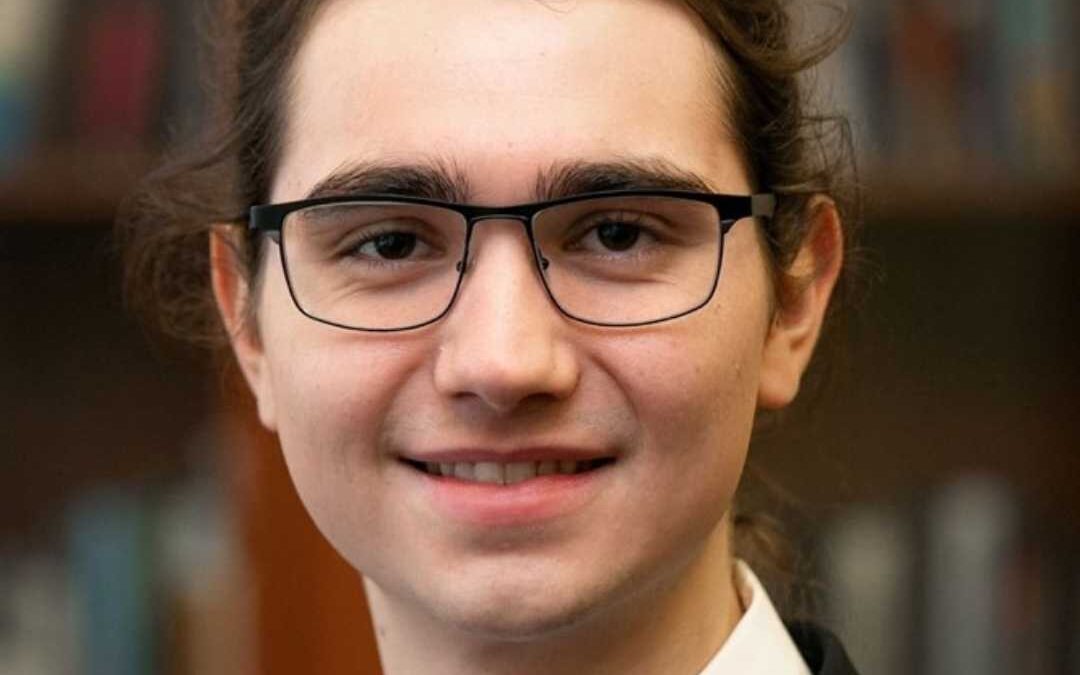Blake Plotner is a junior majoring in Molecular and Cellular Biology
Blake Plotner can remember his excitement about science from an early age. With his mother working as a nurse, biology quickly became an interest. Despite growing up in landlocked Illinois, young Blake anticipated studying marine biology, preparing for a future as an expert on “Shark Week.”
Instead, Blake is now a junior honors student at Illinois majoring in Molecular and Cellular Biology, looking toward a career in oncology. Rather than studying shark biology, he is a member of the Cancer Center at Illinois (CCIL) Cancer Scholars Program (CSP), performing breast cancer research in Professor Benita Katzenellenbogen’s laboratory.
Why did Blake shift from sharks to medicine? Blake reminisces, “Growing up, I realized I wanted to do something along the lines of helping others. Hence, I asked, what’s something I can do in biology that’s directly giving care to others? And that’s how I chose medicine.” He continues, “I realized that if I wanted to do medicine, I’d have to start taking my studies more seriously.”
The summer before starting his freshman year, Blake learned about the CSP. Through his exploration into the CSP, he began to learn about the field of oncology and the large burden of cancer that exists for so many, despite his own lack of close connections to the disease. His observations about the interplay between genetics and cancer sparked Blake’s innate scientific curiosity to further understand the disease and how it can be cured.
Inspired to learn more about the complex mechanisms of cancer biology, Blake emailed a long list of professors across campus to get involved in a research lab his freshman year. “Dr. Marcia Pool, who leads all the classes for the Cancer Scholars Program and is a great mentor, helped me find a good lab and write my resumes and letters,” he says. “I was emailing every single professor because I was a freshman and didn’t think I was going to get into any labs. It was difficult, but eventually Prof. Katzenellenbogen saw potential and let me join her lab.”
Blake has now been working in the Katzenellenbogen group for almost two years, where he collaborates on screening studies to discover novel combination therapies for aggressive breast cancers. “Through using a compound our lab developed, we are trying to target the cancer cells in two different ways at once, via the apoptosis and ferroptosis cell death pathways. We’re still trying to figure out which are going to be the most synergistic with our compound, while not being so damaging to patients,” says Blake, who noted these synergy studies in cellular models are among his favorite experiments to perform in the lab.
“One of my mentors told me: ‘Cancer is not something for which we’re going to have a silver bullet drug. It’s not something we can just find one cure for.’ That’s part of why it’s so difficult to cure cancer once and for all,” Blake shared.
Fortunately, while Blake is committed to making a difference as a future medical oncologist, he realizes he and his peers do not have to wait to make an impact. Blake reflected, “For me, being a cancer scholar with the CCIL means being right on the forefront of cancer research. As undergrads, we are preparing ourselves to contribute to the field and potentially find cures for all types of cancer.”
Editor’s note:
This story was written by Katie Brady, CCIL Communications Team

